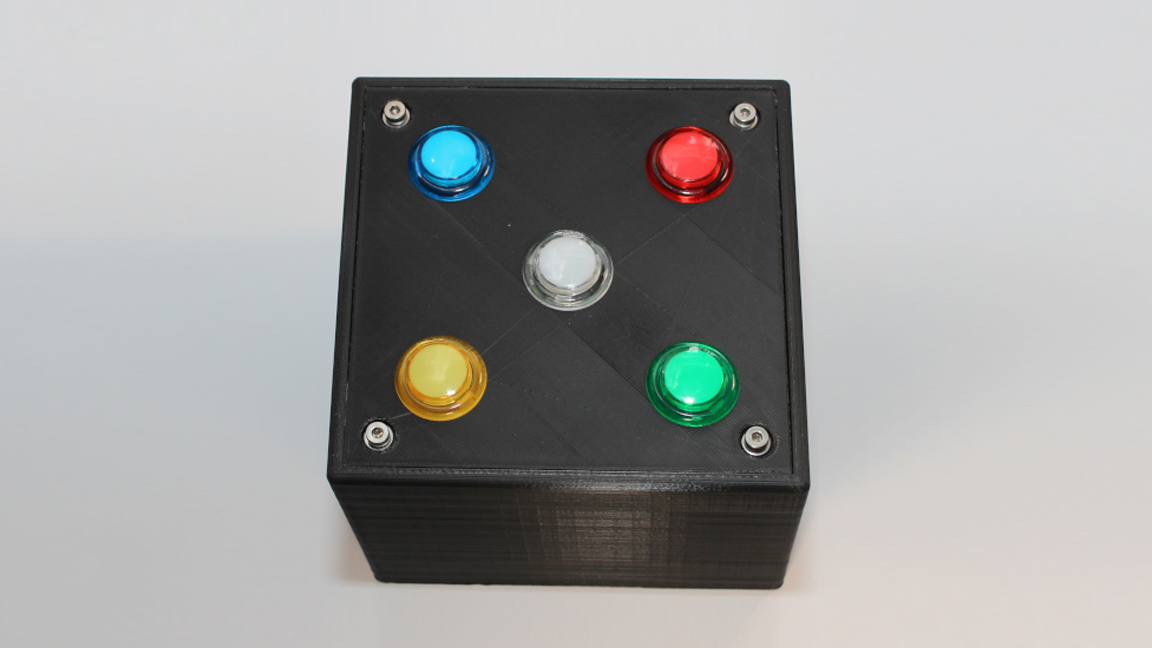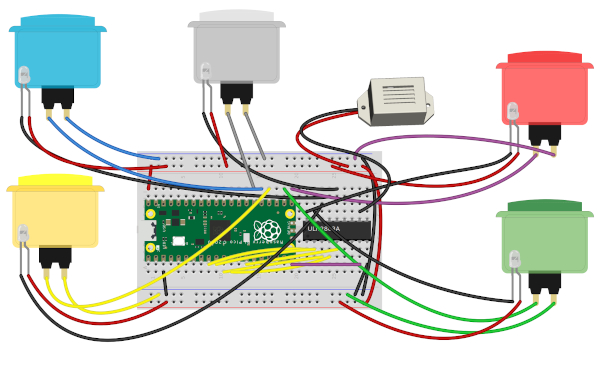Raspberry Pi Pico Reaction Game Tests Your Speed

Who says you can’t learn and have fun at the same time? Certainly not Stewart Watkiss, the mastermind behind PenguinTutor. In his latest project, you can learn quite a bit about wiring buttons and programming your own game using the Raspberry Pi Pico microcontroller and end up with a fun game that you get to keep at the end!
This project actually introduces a couple of possibilities in the form of multiple games — plus you can get creative and make up your own once you’ve finished. It involves programming a series of arcade buttons that are housed within a custom shell. According to Watkiss, the project was created just for The MagPi (the official Raspberry Pi magazine), specifically issue 129 if you want to check it out.
The first game the project features is somewhat of a quiz buzzer. You’ll need three people to play. First, a person reads the question to the two players. When a player thinks they have the right answer, they must slap (or gently press) their button. The button pressed first will illuminate, signifying who gets to answer the question. The second game is a reaction game that can support up to four players. Players must hit their button as fast as possible when the light illuminates.
It doesn’t take much processing power to handle these games, so Watkiss is using a Raspberry Pi Pico. Any model of Raspberry Pi Pico can be used, including some other RP2040 based boards. The arcade buttons feature 5V LEDs that are crucial to the game core functions, so you can’t substitute these for ones without LEDs. A ULN2803 Darlington driver board is used to control the LEDs. Everything is housed inside of a case that any of the best 3D printers could create.
All of the game files are Python-based and totally open source for anyone who wants to check them out. Both the quiz game and reaction game can be found on the official project page over at GitHub. These are great starting points that you can use to inspire your own games.
If you want to recreate this Raspberry Pi project or just get a closer look at how it goes together, check out the Pico quiz game project page on the official Penguin Tutor website. Be sure to follow Watkiss for more cool projects as well as tutorials on how to put them together. We've also got our own version for you to try out.
Get Tom's Hardware's best news and in-depth reviews, straight to your inbox.

Ash Hill is a contributing writer for Tom's Hardware with a wealth of experience in the hobby electronics, 3D printing and PCs. She manages the Pi projects of the month and much of our daily Raspberry Pi reporting while also finding the best coupons and deals on all tech.
